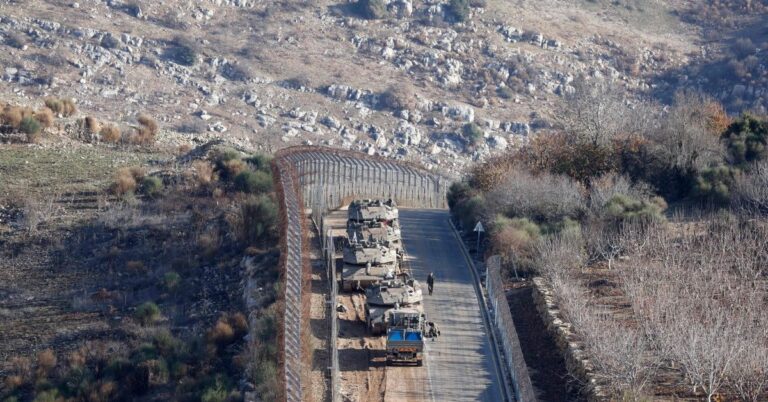The concept of “exploiting power vacuum” has long been a focal point in discussions about geopolitics, business, and leadership. When authority crumbles or governance weakens, power vacuums emerge, offering opportunities for individuals, groups, or nations to assert dominance. However, while seizing such opportunities may yield short-term gains, it often comes with significant risks and long-lasting repercussions. This article explores the dynamics of power vacuums, how they are exploited, and the implications for societies, organizations, and global stability.
Understanding the Power Vacuum
What is a Power Vacuum?
A power vacuum occurs when a leadership void is created due to the collapse, removal, or abdication of authority. This phenomenon can arise in political contexts, corporate structures, or even community organizations. The absence of clear governance creates an unstable environment, often leading to competition among various entities vying to fill the gap.
Historical Examples of Power Vacuums
Throughout history, power vacuums have played pivotal roles in shaping the course of events. For example, the fall of the Roman Empire left Europe fragmented, setting the stage for the feudal system. Similarly, the dissolution of the Soviet Union in 1991 led to a scramble for influence in former Soviet territories. These instances highlight the opportunities and chaos that power vacuums can bring.
Strategies for Exploiting Power Vacuums
Political Maneuvering
In political contexts, exploiting a power vacuum often involves strategic alliances, covert operations, or the use of military force. Nations or factions leverage instability to expand their influence, assert control, or impose their ideologies. For example, during the Arab Spring, various groups capitalized on the weakening of governments to push their agendas.
Economic Opportunism
In the business world, power vacuums emerge when major players exit a market, leaving a gap for competitors to fill. Companies that act swiftly can capture market share, establish dominance, and redefine industry standards. However, this requires careful planning, as rushing into a destabilized market can lead to significant risks.
Grassroots Movements
At the community level, power vacuums can inspire grassroots movements to step in and rebuild governance structures. These movements often prioritize collective welfare and seek to establish systems that are more inclusive and equitable. While the process may be challenging, it underscores the potential for positive change amid uncertainty.
Risks and Ethical Considerations
Instability and Conflict
One of the greatest risks of exploiting a power vacuum is the potential for prolonged instability and conflict. Competing interests often clash, leading to violent power struggles or prolonged uncertainty. This is particularly evident in regions where governance is deeply fragmented.
Ethical Dilemmas
Seizing control in the midst of a power vacuum often raises ethical questions. Should external players intervene in the affairs of another nation or organization? What are the long-term implications for the affected population? Balancing strategic interests with ethical responsibility remains a significant challenge.
Unintended Consequences
Even the most calculated moves can backfire, resulting in unintended consequences. For instance, external intervention in a destabilized region can exacerbate tensions, leading to backlash and resentment. Similarly, businesses that overextend themselves in unstable markets may face financial ruin.
Case Studies of Power Vacuum Exploitation
The Middle East and Regional Politics
The power vacuums created by the fall of regimes in the Middle East have been exploited by various state and non-state actors. For example, the collapse of Saddam Hussein’s government in Iraq led to a struggle for control, with insurgent groups and foreign powers vying for influence.
Corporate Takeovers
In the corporate world, the sudden departure of a dominant player often creates a vacuum ripe for exploitation. For instance, when a leading tech company exits a region, smaller firms may rush to fill the gap. While some succeed in capturing market share, others falter due to unpreparedness.
Implications for Global Stability
Geopolitical Consequences
The exploitation of power vacuums often has far-reaching implications for global stability. It can lead to the redrawing of territorial boundaries, shifts in alliances, and the emergence of new power centers. However, these changes are rarely without conflict, highlighting the need for careful management of transitions.
The Role of International Organizations
International organizations play a critical role in managing power vacuums and preventing their exploitation. Through mediation, peacekeeping, and development initiatives, these organizations aim to stabilize regions and facilitate smooth transitions of power.
Lessons from Exploiting Power Vacuums
The dynamics of power vacuums teach us several important lessons. First, timing and preparation are crucial for those seeking to exploit such opportunities. Second, the risks associated with instability and ethical dilemmas must not be underestimated. Finally, collaboration and inclusivity often yield better outcomes than unilateral actions, underscoring the importance of collective effort in addressing power vacuums.
Conclusion
Exploiting power vacuums is a complex process that requires strategic foresight, ethical considerations, and a willingness to adapt to evolving circumstances. While power vacuums present opportunities for change, they also carry significant risks that can have lasting implications. By understanding the dynamics of these situations and approaching them with care, individuals, organizations, and nations can navigate power vacuums effectively, contributing to stability and progress.

